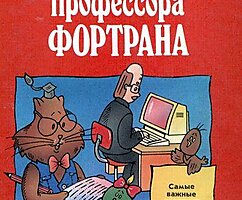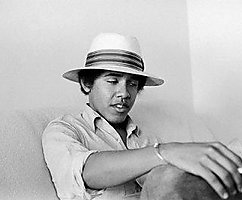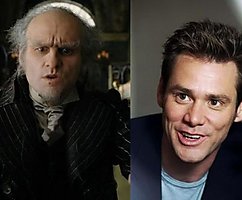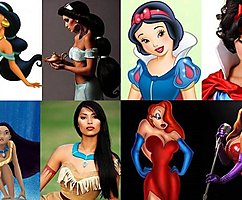Michael strong on freedom from training programs and subcultures knowledge
 Bashny.Net
Bashny.Net
What is familiar to us system of education is experiencing a deep crisis, already at anybody does not cause doubts — but it is not yet clear what will replace traditional universities. Writer and educator Michael strong, the ideologist of the educational project FLOW and recently performed at the DI Telegraph in the framework of joint lectures Esquire and InLiberty. "Theory and practice" talked to him about how to teach students non-conformism, do we need a General basic education, and why learning in the future will not only be high-tech, but much more human.
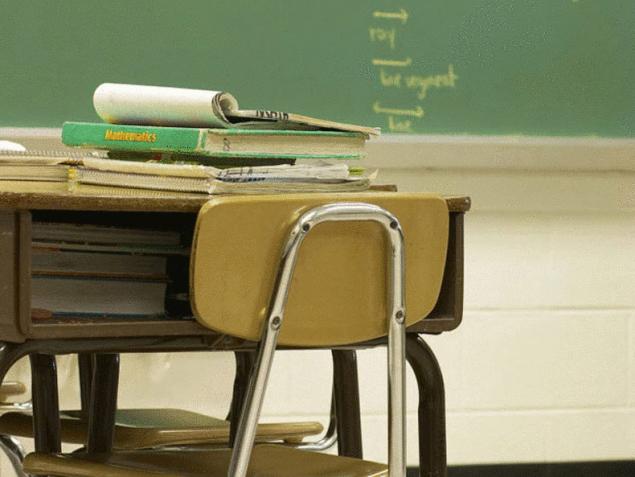
— Do you think that education today becomes a kind of cargo cult — the repetition of other people's ideas without understanding?
— Yes, absolutely. I think it is very important authentic learning, learning for myself — I like the idea of autodidactism. There is a close connection between independent thinking, creativity and innovation. For me, all the major changes in this world are committed by people who know how to think for themselves, and in particular do not depend on external forms of training.
You often mention the Asch experiment: people tend to agree that one line is longer than the other, if most of the surrounding claims. Conformism, in your opinion, is the main product of the traditional system of education?
— I think that man is by nature inclined to conformism. What interests me most is the history of non — conformism. Socrates was sentenced to death because he disrespected the gods and the state — in fact, he just asked questions that caused young people to think independently. It seems to me that the conformism was originally the norm for humanity, and the most interesting that happened in Western civilization — the gradual development of Socratic thinking.
— I like your idea that the most important thing that we need to teach students a variety of ideas. Probably the only way today, and it is possible to build education in the Humanities, but how to be with technology? How to apply this method, for example, in biochemistry? Assuming many equal points of view in this sphere, experimental mix may just explode.
— Of course, there are certain areas of knowledge, which strongly depend on the set of approved facts. However, people should always think for themselves, regardless of specialization. Professional mathematicians, for example, is thinking outside the box. The main problem here is that you need to constantly decide in what cases to take external knowledge as a given, and in which to comprehend it and interpret in their own way. When I talk about diversity of ideas, I mean it is the sole responsibility for weighing the facts, the ability to treat them critically.
— It turns out that the system of knowledge of the modern world represents an absolute democracy — but at the same time and the triumph of uncertainty. How to change our society if we acknowledge this fact? This is a danger for the current policy and state.
The most exciting thing going on in this direction — the world of bitcoins and the block chain (blockchain — a database that stores all ever transaction — approx. T&P). Independent thinkers — including Satoshi Nakamoto — have created new opportunities for many people and now many people use the blockchain technology to create a parallel world with alternative laws and the Board. There are new levels of financial systems, legislation, authorities, contracts, registration — whole systems that are no longer dependent on the state. We found a very interesting historical moment when virtual reality might be independent from this. Freedom of creative expression is evident around the world, interesting people from different countries start using these new rules of the game — regardless of whether they are in Hong Kong or Singapore made in the USA or in entirely new places. And prosperity of these regions will depend on talented activists, and control "top-down" will gradually lose its importance. This is encouraging.
"I am absolutely not interested in General knowledge — you need to let people choose. Picasso could barely solve a math problem, but it does not hurt his career"
— And what about the ethics? Do you agree with Plato's theory that in the mind of every person lies the true idea of good and evil and they are not required to impose from the outside?
— I, of course, the absolute Platonist — but would like to add to the theory of the philosopher, the data of evolutionary biology and psychology. In primitive times from the tribe expelled those who did not act according to rules or too selfish. I think there was always those whom we would today call sociopaths, but they are a minority. How do we structure a society in which ethical majority will be able to control the sociopaths, and to make sure that they are not much harm to everyone else? In the entire history of mankind we have accumulated a variety of mechanisms for this, although the modern society and confronts us with new challenges. No one wants a nuclear explosion and the deaths of millions of people — and, perhaps, with the development of technology, we can better identify people and organizations that pose a threat.
— What basic knowledge we need to teach all people? And what an institution needs to solve this problem?
— I have absolutely no interested in General knowledge — I believe that we need to allow people to choose what knowledge they want to obtain. Picasso could barely solve a math problem, but it does not hurt his career. I would like to let people do what they have a tendency — of course, the result will be poor results on General subjects, but many people do not cope with them now. Knowledge should be especially useful — and a lot of people around the world learning English right now. I don't know if you are familiar with the series of experiments Hole in the wallв India. Uneducated children have learned to use the Internet and computer just because I wanted to. I think that when some knowledge has value, people want it to.
But you often mention futurology as one of the disciplines, which did not disturb anyone in education.
— I don't want someone else deciding what and whom to teach. The ability to speak is a useful skill, and we all learn to speak without external guidance. I think that when we can reduce the importance of this was imposed from the outside General knowledge, we will be able to see him more authentic version, for example, such as the ability to write and think. I think that's the most important commodities in the education market, and they have value in the real world. We will see more institutions that will develop high levels of reading, writing and thinking in their students the ability to create and implement innovations, while external authorities will gradually die.
— What place do you see for new technologies in education of the future? It will be a kind of public archive for self-study?
— I think that all problems that can be solved with a fast and cheap technologies will be removed from the people and is vested in these technologies. Another question — and more important — what place in the new system of teaching is allotted to man? Very few people can learn only through technology, most people like the interaction of face-to-face. I think those who remain to work in the education system, will need to focus on "human" ways of teaching, Socratic dialogue, social interaction, providing emotional support, connection with others and community. A cognitive component can be left technology.
— You think that's why technology in education has not yet produced the revolution we were expecting?
— For me, in modern education the important thing is culture. If you have a certain cultural level, you can learn using technologies, if you don't have it then you can not. As a teacher, I have a primary goal — to create a culture of learning. In some subcultures this course: to learn the latest ideas and discuss them. I was in high school in the city Palato in Colombia, and young people in this school and learned programming at the age of 14 years. It hovered in the air. But in cities like new York city teenagers do not learn to program. I know one woman who makes everything possible for this to happen — it creates a culture that makes the discussion about programming interesting, shows its value. For me education is the creation of subcultures in which it is possible to actively build positive relationships between students and to support their development.
— What competencies should have a teacher in the modern world? You criticize scientists and researchers because they are not able to encourage students to engage in active self search for knowledge.
— The role of the teacher will mainly boil down to, to be a coach, a mentor and create a certain culture. Today in the US, many CEO's have personal coaches. As a teacher I feel that my job is to be a coach for the young. I don't need to give them any information — the Internet and other people to provide everything they need. I think that each of us will be much better if get a personal trainer — and will receive support from a group of like-minded people. As soon as we can systematically use this approach, we are able to provide quality and affordable education for everyone.
"Berkeley was the guy who rode a unicycle, paint your own skin under a pink leopard. Conformity is so natural that only after seeing other queer people, we understand that it can be completely free to be myself"
— You had classes around the world — which culture do you think have a more independent thinking and which is stronger influenced by the pressure of public ideas?
— I think one of the strengths of USA is that people there are able to think for themselves. Not everywhere, of course, but, for example, in Austin (I know this because I opened a school there) — the slogan is: "Let Austin be weird." Here is freedom, here it is possible to be an individual. I once lived on the outskirts of San Francisco, and there is the case: no matter how weird you are, there is always someone much more weird than you. In Berkeley was the guy who rode a unicycle, paint your own skin under a pink leopard. There was a guy who came to class naked. Why am I talking about oddities? Because conformity is so natural that only after seeing other queer people, we understand that it can be completely free to be himself.
My other favorite story is about a Chinese cellist, who told his parents: "you Can be a good son and a good cellist, but not at the same time". Confucian culture is very conformist, but many do not understand the feedback authority with creativity and freedom. If you always respect authority, you're never fully free. This is a complex issue: the respect of parents and authorities represents an undeniable value, but creativity is always about breaking the rules. I like to be in the subcultures where everyone breaks the rules, where there is a sense of freedom, the liberation of mind and spirit. It is incredibly important for creativity.
— All should receive University education?
— Not at all. There are many different alternatives to universities. People who like school education, universities seem to be important, but more and more young people are satisfied with their lives, not having any University education. I think one of the important steps is to create an institution for them. After all the main plus of the University community. So we need to give people the opportunity to communicate in communities — and not to perform at the same academic work.
I can cite a few examples, in particular, a business incubator in Santiago — where you can feel the spirit of community, there is training, but first of all there are going to people who work in their companies. This is not directly related to education — this organization is reminiscent first and foremost a club where people eat, drink coffee and tea, spend their time, but at the same time create their own company and share their experiences. Need places and spaces like this (DI Telegraph, which is a conversation — approx. T&P) where people can come, spend time and get a sense of belonging to the community. This, I think, would be a significant progress in the education industry.
"I think thousands of universities will go bankrupt in the coming decades. A long time has passed, the baby boom, and will be much less students wishing to study in earnest"
— How many universities in America have already turned to the individualized training approach? Listening to you, it seems that there is still a long way.
— I think they are now much less than we would like. Hard to talk about this in precise terms, in most universities there are a lot of great professors, but the institutions as such do not give the impression of a healthy. I think thousands of universities will go bankrupt in the coming decades. A long time has passed, the baby boom, and will be much less students wanting to study really. Besides, in many universities there is a healthy culture of learning: they often become just a place for parties. People spend there time or anything during this time do not learn. And some universities are very expensive, so smart people just choose space-incubators.
— You say that, as in the case of large corporations, large universities will significantly lose their power in the future and they will press the small universities are more progressive and quick. You already have an example of such a University that you like?
One of the best examples is the College of engineering, Olin. Modern engineering education is often criticized for the fact that there are a lot of math and science, and when a person becomes an engineer, he needs to solve real problems, not equations. In this College students are taught to solve real engineering problems. There is also a great MBA program in Austin Texas, where a hundred percent of the teachers are entrepreneurs, not PhDs. Usually, teachers require degree, but the promoters claim that teach entrepreneurs need other entrepreneurs, not PhDs. This is another interesting example — the people who make it their task to pass on knowledge, and not to broadcast this old-fashioned academic model.
— What should be a successful educational institution of the future?
— I think it will be radically pluralistic. As, for example, the food industry in the U.S. — today it is the most diverse. There are shops that sell a relatively small number of products but all-natural, there are shops which spetsializiruyutsya on any one product, there are supermarkets with cheap food, there are farmers ' markets where you can bring what you've grown yourself, and so on. In America there is no right way to buy and eat food — there are thousands of restaurants and thousands of shops. I think education will be the same. Maybe there will be more universities, dedicated to small specializations, and it's great. For example, universities that focused only on one type of programming, one form of marketing, one form of graphic design — anything that would help people to increase the value of his professional life. At the same time there are also colleges on yoga. And while we don't think of them as universities, but maybe there will be a new program, for example "yoga + mathematics". This is a very funny example, but I use it to say: forget about a single correct answer to this question and be prepared for what will be thousands of correct answers.
Source: theoryandpractice.ru

— Do you think that education today becomes a kind of cargo cult — the repetition of other people's ideas without understanding?
— Yes, absolutely. I think it is very important authentic learning, learning for myself — I like the idea of autodidactism. There is a close connection between independent thinking, creativity and innovation. For me, all the major changes in this world are committed by people who know how to think for themselves, and in particular do not depend on external forms of training.
You often mention the Asch experiment: people tend to agree that one line is longer than the other, if most of the surrounding claims. Conformism, in your opinion, is the main product of the traditional system of education?
— I think that man is by nature inclined to conformism. What interests me most is the history of non — conformism. Socrates was sentenced to death because he disrespected the gods and the state — in fact, he just asked questions that caused young people to think independently. It seems to me that the conformism was originally the norm for humanity, and the most interesting that happened in Western civilization — the gradual development of Socratic thinking.
— I like your idea that the most important thing that we need to teach students a variety of ideas. Probably the only way today, and it is possible to build education in the Humanities, but how to be with technology? How to apply this method, for example, in biochemistry? Assuming many equal points of view in this sphere, experimental mix may just explode.
— Of course, there are certain areas of knowledge, which strongly depend on the set of approved facts. However, people should always think for themselves, regardless of specialization. Professional mathematicians, for example, is thinking outside the box. The main problem here is that you need to constantly decide in what cases to take external knowledge as a given, and in which to comprehend it and interpret in their own way. When I talk about diversity of ideas, I mean it is the sole responsibility for weighing the facts, the ability to treat them critically.
— It turns out that the system of knowledge of the modern world represents an absolute democracy — but at the same time and the triumph of uncertainty. How to change our society if we acknowledge this fact? This is a danger for the current policy and state.
The most exciting thing going on in this direction — the world of bitcoins and the block chain (blockchain — a database that stores all ever transaction — approx. T&P). Independent thinkers — including Satoshi Nakamoto — have created new opportunities for many people and now many people use the blockchain technology to create a parallel world with alternative laws and the Board. There are new levels of financial systems, legislation, authorities, contracts, registration — whole systems that are no longer dependent on the state. We found a very interesting historical moment when virtual reality might be independent from this. Freedom of creative expression is evident around the world, interesting people from different countries start using these new rules of the game — regardless of whether they are in Hong Kong or Singapore made in the USA or in entirely new places. And prosperity of these regions will depend on talented activists, and control "top-down" will gradually lose its importance. This is encouraging.
"I am absolutely not interested in General knowledge — you need to let people choose. Picasso could barely solve a math problem, but it does not hurt his career"
— And what about the ethics? Do you agree with Plato's theory that in the mind of every person lies the true idea of good and evil and they are not required to impose from the outside?
— I, of course, the absolute Platonist — but would like to add to the theory of the philosopher, the data of evolutionary biology and psychology. In primitive times from the tribe expelled those who did not act according to rules or too selfish. I think there was always those whom we would today call sociopaths, but they are a minority. How do we structure a society in which ethical majority will be able to control the sociopaths, and to make sure that they are not much harm to everyone else? In the entire history of mankind we have accumulated a variety of mechanisms for this, although the modern society and confronts us with new challenges. No one wants a nuclear explosion and the deaths of millions of people — and, perhaps, with the development of technology, we can better identify people and organizations that pose a threat.
— What basic knowledge we need to teach all people? And what an institution needs to solve this problem?
— I have absolutely no interested in General knowledge — I believe that we need to allow people to choose what knowledge they want to obtain. Picasso could barely solve a math problem, but it does not hurt his career. I would like to let people do what they have a tendency — of course, the result will be poor results on General subjects, but many people do not cope with them now. Knowledge should be especially useful — and a lot of people around the world learning English right now. I don't know if you are familiar with the series of experiments Hole in the wallв India. Uneducated children have learned to use the Internet and computer just because I wanted to. I think that when some knowledge has value, people want it to.
But you often mention futurology as one of the disciplines, which did not disturb anyone in education.
— I don't want someone else deciding what and whom to teach. The ability to speak is a useful skill, and we all learn to speak without external guidance. I think that when we can reduce the importance of this was imposed from the outside General knowledge, we will be able to see him more authentic version, for example, such as the ability to write and think. I think that's the most important commodities in the education market, and they have value in the real world. We will see more institutions that will develop high levels of reading, writing and thinking in their students the ability to create and implement innovations, while external authorities will gradually die.
— What place do you see for new technologies in education of the future? It will be a kind of public archive for self-study?
— I think that all problems that can be solved with a fast and cheap technologies will be removed from the people and is vested in these technologies. Another question — and more important — what place in the new system of teaching is allotted to man? Very few people can learn only through technology, most people like the interaction of face-to-face. I think those who remain to work in the education system, will need to focus on "human" ways of teaching, Socratic dialogue, social interaction, providing emotional support, connection with others and community. A cognitive component can be left technology.
— You think that's why technology in education has not yet produced the revolution we were expecting?
— For me, in modern education the important thing is culture. If you have a certain cultural level, you can learn using technologies, if you don't have it then you can not. As a teacher, I have a primary goal — to create a culture of learning. In some subcultures this course: to learn the latest ideas and discuss them. I was in high school in the city Palato in Colombia, and young people in this school and learned programming at the age of 14 years. It hovered in the air. But in cities like new York city teenagers do not learn to program. I know one woman who makes everything possible for this to happen — it creates a culture that makes the discussion about programming interesting, shows its value. For me education is the creation of subcultures in which it is possible to actively build positive relationships between students and to support their development.
— What competencies should have a teacher in the modern world? You criticize scientists and researchers because they are not able to encourage students to engage in active self search for knowledge.
— The role of the teacher will mainly boil down to, to be a coach, a mentor and create a certain culture. Today in the US, many CEO's have personal coaches. As a teacher I feel that my job is to be a coach for the young. I don't need to give them any information — the Internet and other people to provide everything they need. I think that each of us will be much better if get a personal trainer — and will receive support from a group of like-minded people. As soon as we can systematically use this approach, we are able to provide quality and affordable education for everyone.
"Berkeley was the guy who rode a unicycle, paint your own skin under a pink leopard. Conformity is so natural that only after seeing other queer people, we understand that it can be completely free to be myself"
— You had classes around the world — which culture do you think have a more independent thinking and which is stronger influenced by the pressure of public ideas?
— I think one of the strengths of USA is that people there are able to think for themselves. Not everywhere, of course, but, for example, in Austin (I know this because I opened a school there) — the slogan is: "Let Austin be weird." Here is freedom, here it is possible to be an individual. I once lived on the outskirts of San Francisco, and there is the case: no matter how weird you are, there is always someone much more weird than you. In Berkeley was the guy who rode a unicycle, paint your own skin under a pink leopard. There was a guy who came to class naked. Why am I talking about oddities? Because conformity is so natural that only after seeing other queer people, we understand that it can be completely free to be himself.
My other favorite story is about a Chinese cellist, who told his parents: "you Can be a good son and a good cellist, but not at the same time". Confucian culture is very conformist, but many do not understand the feedback authority with creativity and freedom. If you always respect authority, you're never fully free. This is a complex issue: the respect of parents and authorities represents an undeniable value, but creativity is always about breaking the rules. I like to be in the subcultures where everyone breaks the rules, where there is a sense of freedom, the liberation of mind and spirit. It is incredibly important for creativity.
— All should receive University education?
— Not at all. There are many different alternatives to universities. People who like school education, universities seem to be important, but more and more young people are satisfied with their lives, not having any University education. I think one of the important steps is to create an institution for them. After all the main plus of the University community. So we need to give people the opportunity to communicate in communities — and not to perform at the same academic work.
I can cite a few examples, in particular, a business incubator in Santiago — where you can feel the spirit of community, there is training, but first of all there are going to people who work in their companies. This is not directly related to education — this organization is reminiscent first and foremost a club where people eat, drink coffee and tea, spend their time, but at the same time create their own company and share their experiences. Need places and spaces like this (DI Telegraph, which is a conversation — approx. T&P) where people can come, spend time and get a sense of belonging to the community. This, I think, would be a significant progress in the education industry.
"I think thousands of universities will go bankrupt in the coming decades. A long time has passed, the baby boom, and will be much less students wishing to study in earnest"
— How many universities in America have already turned to the individualized training approach? Listening to you, it seems that there is still a long way.
— I think they are now much less than we would like. Hard to talk about this in precise terms, in most universities there are a lot of great professors, but the institutions as such do not give the impression of a healthy. I think thousands of universities will go bankrupt in the coming decades. A long time has passed, the baby boom, and will be much less students wanting to study really. Besides, in many universities there is a healthy culture of learning: they often become just a place for parties. People spend there time or anything during this time do not learn. And some universities are very expensive, so smart people just choose space-incubators.
— You say that, as in the case of large corporations, large universities will significantly lose their power in the future and they will press the small universities are more progressive and quick. You already have an example of such a University that you like?
One of the best examples is the College of engineering, Olin. Modern engineering education is often criticized for the fact that there are a lot of math and science, and when a person becomes an engineer, he needs to solve real problems, not equations. In this College students are taught to solve real engineering problems. There is also a great MBA program in Austin Texas, where a hundred percent of the teachers are entrepreneurs, not PhDs. Usually, teachers require degree, but the promoters claim that teach entrepreneurs need other entrepreneurs, not PhDs. This is another interesting example — the people who make it their task to pass on knowledge, and not to broadcast this old-fashioned academic model.
— What should be a successful educational institution of the future?
— I think it will be radically pluralistic. As, for example, the food industry in the U.S. — today it is the most diverse. There are shops that sell a relatively small number of products but all-natural, there are shops which spetsializiruyutsya on any one product, there are supermarkets with cheap food, there are farmers ' markets where you can bring what you've grown yourself, and so on. In America there is no right way to buy and eat food — there are thousands of restaurants and thousands of shops. I think education will be the same. Maybe there will be more universities, dedicated to small specializations, and it's great. For example, universities that focused only on one type of programming, one form of marketing, one form of graphic design — anything that would help people to increase the value of his professional life. At the same time there are also colleges on yoga. And while we don't think of them as universities, but maybe there will be a new program, for example "yoga + mathematics". This is a very funny example, but I use it to say: forget about a single correct answer to this question and be prepared for what will be thousands of correct answers.
Source: theoryandpractice.ru
Tags
See also
As the children learn from the Tundra (31 photos)
Myths about the USSR
Seven myths about the Soviet Union
Tanks felines.
The basic idea of robotics and eight smaller ideas
On Higher Education
Nanodiplomy (nanodegrees) after online learning recognized as the largest IT-company
Kickstarter: 100 facts (in the figures) of the first 100 000 Projects






